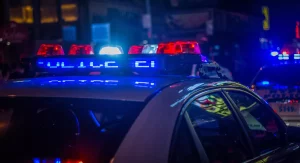Fight a Speeding Ticket - Get Help
Get assistance fighting your speeding ticket

If you’ve recently received a speeding ticket in Ontario, you might be feeling anxious and unsure about the best course of action. The Highway Traffic Act (HTA), specifically Section 128, governs speed limits and related offences in Ontario. Understanding the nuances of this legislation and knowing how to effectively challenge a speeding ticket can make a significant difference in your case. Here's a comprehensive guide to help you navigate through the process of fighting a speeding ticket with the assistance of a licensed paralegal.
Understanding Section 128 of the Highway Traffic Act
Section 128 of the Highway Traffic Act outlines the speed limits applicable on Ontario roads. These limits are established to ensure the safety of all road users. According to this section, the maximum speed limits are as follows:
- 50 km/h in cities, towns, and villages, unless otherwise posted
- 80 km/h on highways outside of urban areas
- Specific speed limits as posted on various roads and highways
Exceeding these speed limits can result in a speeding ticket, which can carry hefty fines, demerit points, and increased insurance premiums.
Consequences of a Speeding Ticket
Receiving a speeding ticket can have several consequences:
- Fines: The amount of the fine varies depending on how much over the speed limit you were driving. Fines increase significantly if you were caught speeding in a construction zone or a community safety zone.
- Demerit Points: Accumulating demerit points can lead to license suspension. For example, driving 16-29 km/h over the speed limit results in 3 demerit points, while 30-49 km/h over the limit results in 4 demerit points.
- Insurance Rates: Insurance companies may increase your premiums based on the severity and frequency of your offences.
Steps to Fight a Speeding Ticket
Fighting a speeding ticket involves several steps, and having a knowledgeable paralegal on your side can significantly improve your chances of success. Here’s how you can proceed:
- Review the Ticket: Carefully check the ticket for any errors or inconsistencies. These can be crucial in your defense.
- Request Disclosure: Request the evidence against you, including the officer’s notes and radar or laser gun readings. This is known as disclosure.
- Plead Not Guilty: To contest the ticket, you must plead not guilty and request a trial. This is done by mailing or delivering the ticket to the appropriate court office.
- Prepare Your Defense: Gather evidence, such as witness statements, and identify any potential legal defenses. An experienced paralegal can assist in this process.
- Attend the Trial: Present your case before a judge or justice of the peace. Your paralegal can represent you and argue on your behalf.
Common Defenses Against Speeding Tickets
Several defenses can be used to challenge a speeding ticket:
- Radar/Laser Gun Inaccuracy: Question the accuracy and calibration of the radar or laser gun used to measure your speed.
- Mistaken Identity: Argue that the officer may have mistaken your vehicle for another.
- Emergency Situations: Prove that you were speeding due to an emergency, such as rushing to the hospital.
- Speed Limit Signage: Show that the speed limit signs were not visible or were obscured.
Why Hire a Paralegal?
Hiring a paralegal to fight your speeding ticket can provide several advantages:
- Expert Knowledge: Paralegals are trained and knowledgeable about traffic laws and court procedures.
- Experience: A paralegal has experience handling similar cases and can anticipate the prosecution’s arguments.
- Stress Reduction: They handle all the paperwork, court appearances, and negotiations, reducing your stress and saving you time.
- Better Outcomes: A paralegal can often negotiate reduced fines, fewer demerit points, or even dismissal of the charges.
Conclusion
Fighting a speeding ticket can be a daunting task, but with the right help, you can significantly increase your chances of a favorable outcome. Understanding the details of the Highway Traffic Act, preparing a strong defense, and having a skilled paralegal by your side can make all the difference. If you need assistance with a speeding ticket, consider reaching out to a professional paralegal service to guide you through the process.
For more information on how to fight a speeding ticket, or to get professional help, visit Cambium Legal or consult the Ontario Highway Traffic Act.
Take control of your driving record and protect your rights – get help today!
Related posts:
Laws are created to be followed
by the poor.
Laws are made by the rich
to bring some order to exploitation.
The poor are the only law abiders in history.
When the poor make laws
the rich will be no more.
Roque Dalton, Poema de Amor


